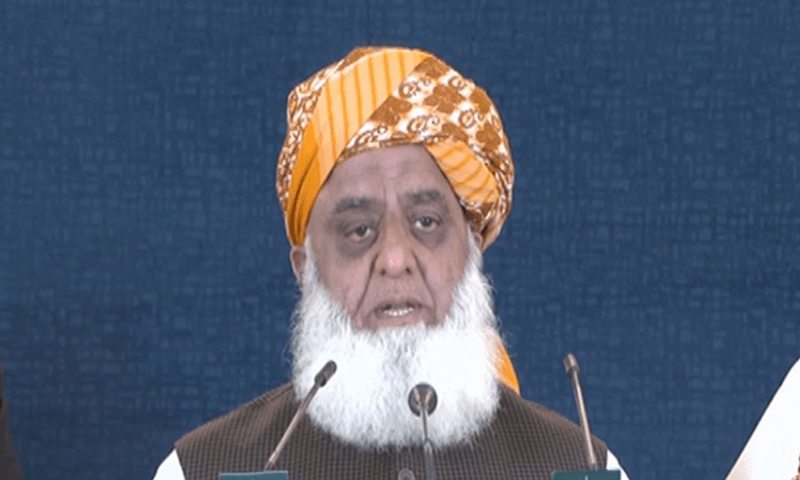ISLAMABAD: Two major religio-political parties — the Jamiat Ulema-i-Islam (JUI-F) and Jamaat-i-Islami (JI) — on Monday took the coalition government to task for its recent legislation, with JUI-F chief Maulana Fazlur Rehman saying that the ruling parties were “gagging” democracy by giving more powers to the establishment.
Speaking at a press conference in Islamabad after a three-day central executive committee meeting, the JUI-F chief said the new bill to amend the anti-terrorism law would be a blot on the face of democratic institutions. “It is tantamount to civil martial law and a slap in the face of democracy.”
“The new legislation is repugnant to the 26th Constitution Amendment,” Maulana Fazl said, adding: “The coalition government is going to pass such a law that will gag democracy.”
He said earlier there were complaints about the National Accountability Bureau and now the “defence establishment is being given powers that were not in its purview”. He referred to the amendment being made in the anti-terrorism act, saying that the JUI-F would oppose the amendments and also hold protests.
Fazl says establishment being given powers beyond scope; JI criticises govt for undermining judiciary
In reply to a question about the JUI-F response if the tweaks to the anti-terror law were passed, he said: “We are here and you are here too — you will see what we will do, we will go to the masses, we did not even accept martial law(s).”
Maulana Fazl reiterated his earlier stance over the purported 27th Amendment, stating that any decision over the next amendment could only be made once the draft was presented.
About the relationship with the PTI, the JUI-F leader said it would be a positive change in Pakistani politics if differences and tense relations with the PTI were normalised and amicable ties were developed with the former ruling party like other political parties.
Maulana Fazl also shared the highlights of the central body meeting. The central executive committee of the JUI-F noted that the 26th Amendment would play a key role in eradicating the interest-based financial system in Pakistan and increasing the importance of the Federal Shariat Court. He said that relaxation in the rules for registration of religious seminaries was another good initiative of the amendment.
On the other hand, the Jamaat-i-Islami said the government ‘ambushed’ the judiciary through the 26th Amendment that had been brought through a “questionable mechanism”. JI chief Hafiz Naeemur Rehman said that the government once again made controversial the mechanism for appointment of judges.
The issue of the seniority of judges in their appointment, which had been settled a long time ago, was once against renewed, the JI leader said while speaking at a presser at the party headquarters in Karachi.
The main objection, Hafiz Naeem claimed, was on the mechanism through which the government had allegedly taken control of the judiciary, politicised it, and changed its fabric by increasing its grip on judicial affairs.
The JI leader highlighted that the amendment was supported by some votes other than the ruling parties, which showed “corruption in the entire process of its passage”. He added since the amendment was made by forcing or luring people, it held no weight. He said that the JI would fight the case in court and would represent the aspirations of the nation in this regard.
Imran Ayub in Karachi also contributed to this report
Published in Dawn, November 5th, 2024











